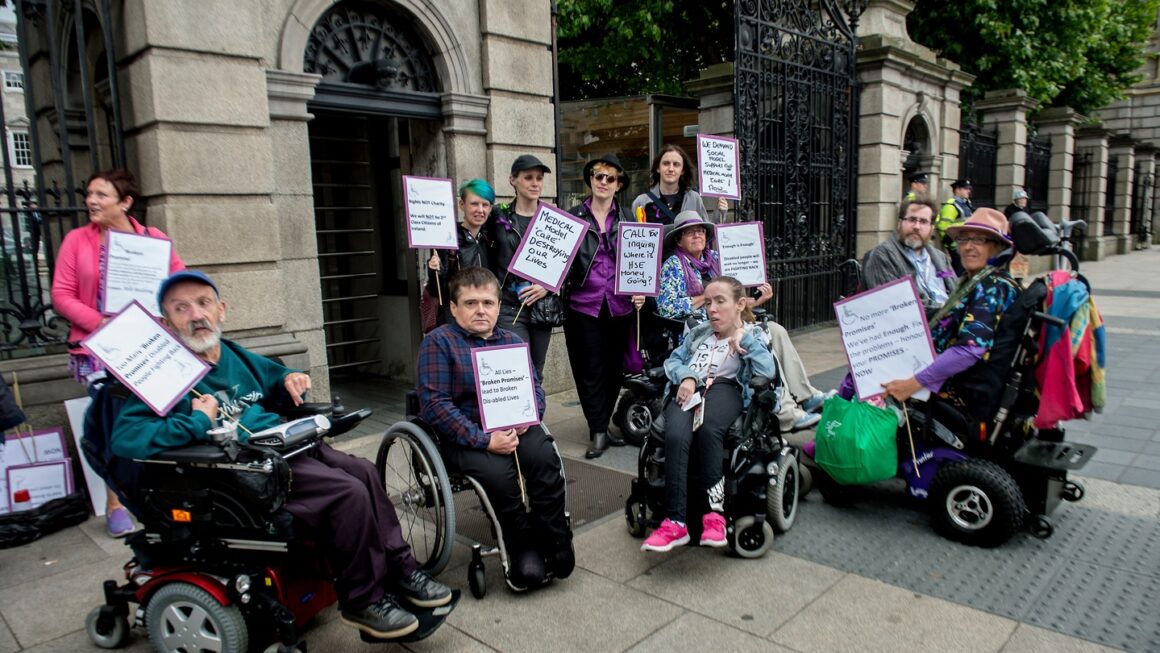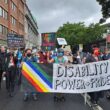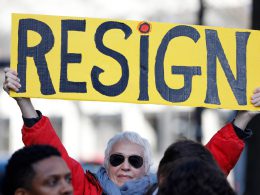Below is a motion that Socialist Party TD Mick Barry will introduce in the Dáil next week on disability
That Dáil Éireann:
notes that:
- the Department of Social Protection’s Green Paper on Disability Reform:
- proposes to introduce three ‘tiers’ of payments depending on a person’s supposed ability to work;
- was published with no consultation with disabled people; and is opposed by a wide range of disabled people and their organisations;
- will do nothing to lift disabled people out of poverty;
- if implemented would pressurise many disabled people into work that is unsuitable;
- proposes a cruel and discriminatory system that international experience has shown causes undue stress for disabled people and endangers their mental and physical health by demanding they go through a job seeker process not designed for disabled people;
- is based on a flawed idea that it is a straightforward process to assess people with disabilities; those with invisible and episodic disabilities will face particular difficulties under this system;
- puts no obligations on employers to make work accessible despite Ireland having very weak legal obligations on workplace accessibility;
further notes that:
- the intervention of many disabled people into the debate around the government’s care referendum highlighted injustices they face due to ableism and the failures of the state to guarantee their rights and was an important factor in defeating that referendum;
- in a report by the Department of Social Protection in 2021, The Cost of Disability in Ireland, the estimated cost of living with a disability was between €8,700 – €12,300 a year; accounting for inflation this would now be between €9,822 and €13,886 per year;
- one in five unable to work due to long-standing health problems live in consistent poverty and one in two in deprivation;
- due to ableist and discriminatory obstacles, disabled people are hit harder by the many social crises facing the wider population; disabled people are:
- twice as likely to be homeless;
- more likely to be unemployed or underemployed with Ireland having the highest level of unemployment among disabled people in the EU;
- due to lack of supports, forced out of education and twice as likely to leave school early;
- more likely to suffer ill health, 25% reporting ‘bad or very bad health’, 43% depression, and a quarter have unmet health needs;
- disabled people who are women, non-binary, LGBTQI, immigrants, members of the Traveller community, or other ethnic groups face additional challenges to accessing services and worse outcomes as a result;
- the state has failed children with disabilities and their parents/ guardians; 8,893 children are now overdue for assessment of need with 6,963 waiting more than three months; 17,157 waiting for first contact with a children’s disability network team, with a waiting list for treatment of over 110,000;
- an economic system that sees workers as a commodity to increase profit, and sees supports and rights for people as a cost, will always marginalise and discriminate against people with disabilities and foster a culture of ableism;
- there is a long history of systemic marginalisation of disabled people by the State; with policies of institutionalisation and a chronic lack of investment in services, supports, care, research, and an outsourcing of care to religious organisations, charities and the family; these policies have compounded discrimination and injustice;
- the state has resisted disabled people seeking rights through the courts; forced them to campaign for services and supports , in particular from the social protection and healthcare systems; with many disabled people having to constantly reapply for medical card or other entitlements;
- the means-testing of disability allowance, carer’s allowance, medical cards and many other supports results in huge stress and pressure on disabled people and their families; with many unable to form families; and vulnerable to abusive relationships;
calls on the government to:
- immediately scrap the Green Paper on Disability Reform; to genuinely consult with disabled people about any reforms; and to commit to no linking of payments to work;
- introduce a system of non-means-tested universal payments that cover the real costs of having a disability and provide income security to disabled people;
- introduce a guaranteed living wage for carers that is not means tested;
- massively expand personal assistance hours as a right to ensure that there is personal assistance to all who need it to study, work, socialise and live a full life; guarantee that all personal assistants have decent pay and conditions;
- immediately ratify the Optional Protocol to the United Nations Convention on the Rights of Persons with Disabilities;
- introduce a constitutional amendment to assert equality for disabled people and to guarantee for all the right to supports needed to fully engage in society as a basic democratic right.












